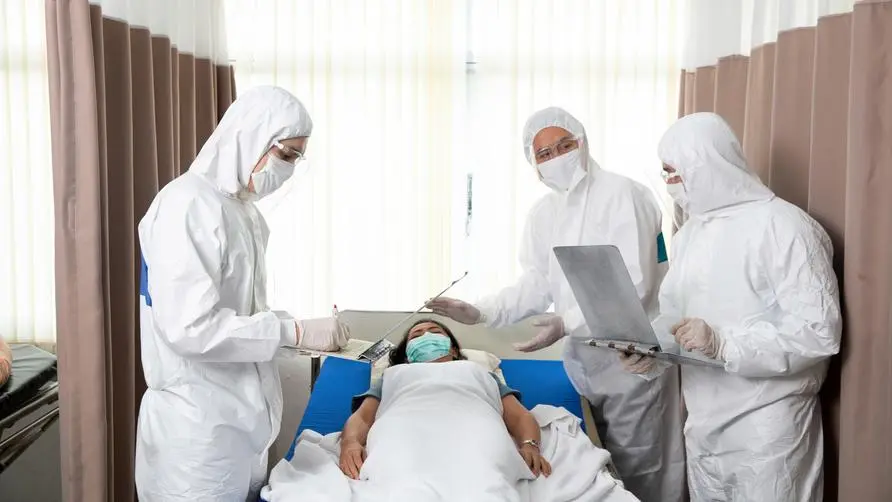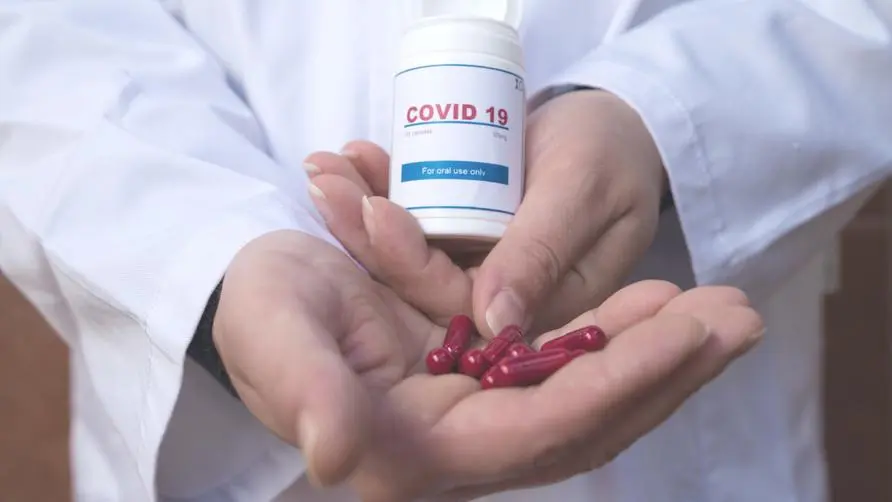Demon king certification? Monoclonal antibodies may not be able to resist Omicron! Study: The inhibitory effect is "almost non-existent"

Omicron mutates quickly and spreads strongly. Will the antiviral treatment effect be less than expected?
Since the Omicron variant spread from South Africa in November 2021, it is highly contagious and can easily cause “immune escape”, making it the main source of infection in today’s global epidemic. Scientists have discovered that at least 33 mutations have been found in the “spike protein” in the Omicron virus; 15 of the 29 amino acids in the receptor binding domain have mutated, which is completely different from the original strain. Can be said.
The mutating speed of the Omicron virus is unprecedented. The latest study published in The New England Journal of Medicine claims that the variability of Omicron has a negative impact on the antibody therapy currently adopted by medical institutions against COVID-19. “Single strain Antibody” treatment may not be as effective as expected.
The study was initiated by the University of Tokyo in Japan and conducted experiments on 7 monoclonal antibody therapies approved by the U.S. Food and Drug Administration (FDA). The study focused on observing the virus-neutralizing ability of the therapies, and tested the efficacy of 7 therapies against various new coronavirus variants through the “Enzyme Immunoassay Assay” (ELISA).
Is monoclonal antibody useless when encountering “mutant viruses”? Facing Omicron, “He was defeated like a mountain”
The study found that several of the seven single-strain therapies could successfully neutralize early variant strains, such as Alpha, Beta and Gamma viruses. However, when the single-strain therapy encountered the Delta virus, the values began to change. For example, the “Bamlanivimab” therapy “almost completely loses activity” against Delta viruses; the two therapies, Etesevimab and Casirivimab, “completely fail” to neutralize Beta and Gamma variants.
Monoclonal antibody therapy is even more “defeated” in the face of the current mainstream virus Omicron. Bamlanivimab and Imdevimab did not successfully neutralize Omicron virus; although Tixagevimab, Cilgavimab, and Sotrovimab were active against Omicron virus, the “FRNT50” value (representing serum antibodies that can neutralize 50% of the virus) produced by the virus was still The highest, 3.7 to 198.2 times higher than beta and gamma viruses respectively, which means that the effect of monoclonal antibodies in neutralizing Omicron viruses is greatly weakened.
The researchers further tried to combine different therapies. Although they had a certain effect in neutralizing early mutant strains such as Alpha and Beta, in the face of Omicron virus, one of the three types of monoclonal antibody combinations lost its ability to neutralize Omicron virus. Activity, 1 type cannot effectively inhibit the virus, and 1 type successfully inhibits virus activity, but the FRNT50 value is still high, 24.8 times and 142.9 times higher than beta and gamma viruses respectively.
Can antiviral drugs protect against Omicron? Study tested 3 drugs “all effective”
Omicron virus has undergone several mutations in the RNA polymerase and the main protease in the new coronavirus, which has caused scientists to worry about the efficacy of oral antiviral drugs for new coronavirus pneumonia. The University of Tokyo team further conducted numerical testing on three different oral drugs, namely “Remdesivir”, “molnupiravir” and “PF-07304814”.
The results of the study found that all three showed therapeutic efficacy in patients infected with Omicron virus. The sensitivity of Omicron virus to these three drugs is similar to that of early mutant strains, so it may be more effective than monoclonal antibody therapy. The study further pointed out that Omicron mutates at an alarming rate, and a variety of antiviral drugs should be continuously developed and “combination treatment” adopted. The “monotherapy” adopted with oral drugs at this stage is not a long-term solution.
The University of Tokyo pointed out that more in-depth research is needed to determine whether the above-mentioned antiviral therapies can truly protect against Omicron virus infection. For example, confirmed patients who have received monoclonal antibody treatment and antiviral drug treatment can be collected to confirm their efficacy through clinical data. The study concluded that although antiviral drugs are effective against Omicron virus, monoclonal antibody treatment may not be effective against Omicron virus.
source:
Efficacy of Antibodies and Antiviral Drugs against Covid-19 Omicron Variant
Further reading:





